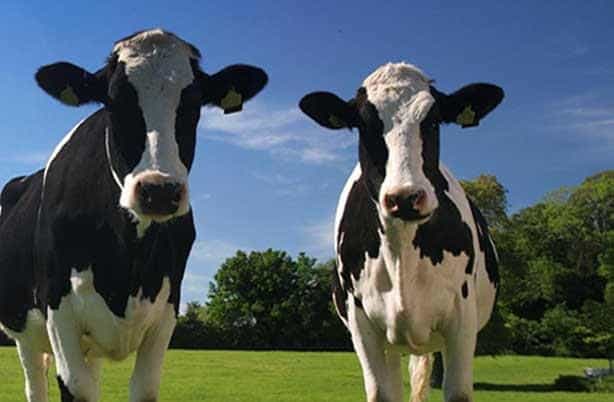The reconstruction of a prehistoric vocabulary, at the same time, reflects upon the culture that those ancient speakers had. When linguists found out that there was a common family of languages that included many European and a few Asian languages, the Indo-European family, they also theorized that there had been a proto-language from which the modern Indo-European languages descended. For the past two centuries, they have worked on the vocabulary of Proto-Indo-European (P.I.E.). Since the vocabulary of this proto-language is the product of a reconstruction and does not appear in any written source, its words are preceded by an asterisk.
P.I.E. had many words related to animal husbandry. One of those words with an asterisk is *gwou. The reader would hardly have any trouble to realize that *gwou is related to the familiar English word “cow.” Indeed it is.
The P.I.E. word *gwou meant “ox, bull, cow” and was inherited by many Indo-European languages. For instance, Sanskrit go, Persian gav, Proto-Germanic *kwon, and even Greek boûs and Latin bōs (the latter originated the English word “bovine”). It was also the source for the Armenian word կով (kov in Classical/Eastern Armenian; gov in Western Armenian). From the Proto-Germanic source came Old English cu, Middle English cu, qu, kowh, and our current “cow.”
Thus, we understand that, in this case, English and Armenian cows are cousins.
However, the old Armenian cows had an advantage over their English cousins. They also produced a word of Indo-European origin together with one of the sub-products of their milk. The Armenian word կոգի (kogi in Classical/Eastern Armenian; goki in Western Armenian) was used in Classical Armenian with the meaning “butter.” It derived from the Proto-Indo-European adjective *gwow-yo, like its cognates in Sanskrit (gavya, “coming from or belonging to a cow; milk”) and Avestan (the language of the Persian holy book, gaoiia, “coming from cattle, consisting of cattle”).
However, as it happens many times in language some Persian source provided another word, which became the one used in Modern Armenian: կարագ (karag in Classical/Eastern Armenian; garak in Western Armenian). And goki became a relic of the past.

